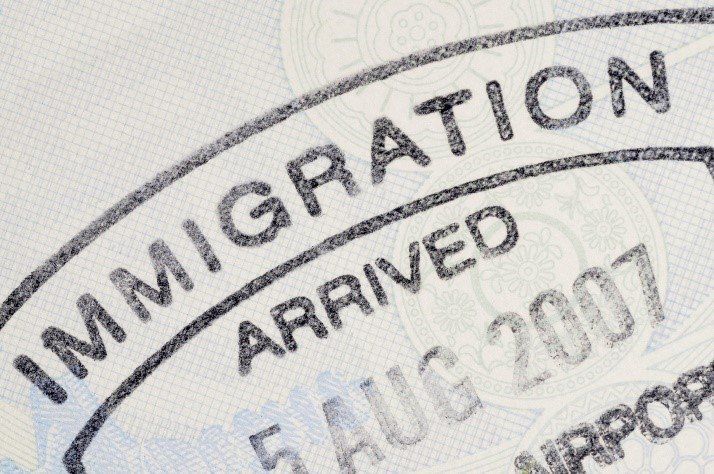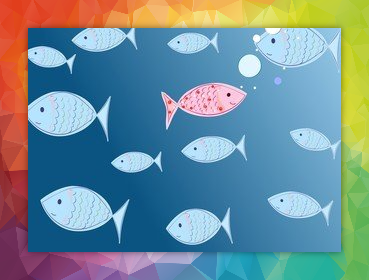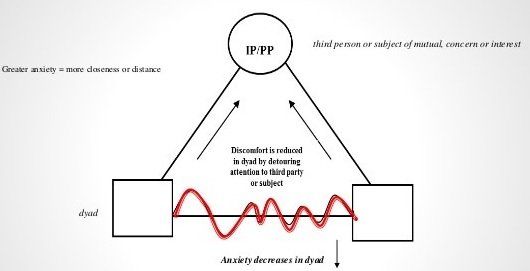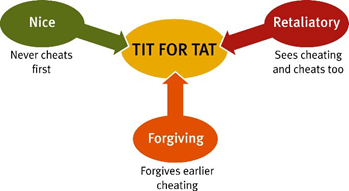On immigration: or how I learned to stop worrying and love the word
- By Ileana Stoica
- •
- 29 Sep, 2017
- •
Being an immigrant can be unexpectedly cool

You never thought there could be anything remotely cool
about being an immigrant, and most people would agree with you – some more
loudly than others.
But when you come across an article on immigration in Financial Times, linking, of all people, Philip Roth and Zlatan Ibrahimović, and managing to hit the right notes in the process, you know you’re on to something.
Yes, you’re an immigrant. You have a past you’d like to talk about but soon after arrival in your new home country you realise it doesn’t make for easy conversation, so you keep it to yourself. In fact, you learn to keep most things to yourself as you decide to steer clear of the gloomy stories the West has come to expect from immigrants just so they feel better about themselves.
You’re grateful to feel cocooned in the lofty world of academia while you’re working towards your degree. You meet many immigrants and you become a collector of life stories. Your get-togethers are full of life and ‘the locals’ are just about the most open-minded, interested and interesting bunch you’re ever going to meet. In fact, you soon forget the ‘us vs. them’ mindset and quickly relate to the human side of us all. It’s still not easy to make emotional connections though, and you find yourself gravitating towards people with a similar past – wounds and all – and replaying the familiar scripts from your culture and family of origin.
You get your degree and immigrate a few more times, from contract position to contract position. You’re a high-flying academic footballer – a hybrid between Philip Roth and Zlatan. Finding your bearings gets easier each time as you start to see past cultural differences. ‘I could get used to this’, you think to yourself.
But life happens, you settle down and get your first job in the ‘real world’. Things quickly change. The empathy quotient drops abruptly and you’re quickly being reminded of the ‘us vs. them’ paradigm – and judged through this reductionist but convenient lens. You find that, in most circumstances, underneath the value and hard work, there’s a game to be played. You try playing the first moves and you get labelled ‘amoral’; you stop playing and you get labelled ‘asocial’, ‘awkward’. And that’s just the letter ‘a’. In time – years after you’ve pushed yourself past your endgame – you learn which parts of the game you’re good at and which you should stop caring about. That’s when a few timid voices start calling you ‘cool’. You go from idealising ‘the locals’ – we’re back to ‘us vs. them’, remember? – to seeing the cracks in the façade, the limitations, character flaws, bigotry.
As an immigrant, you also swallow the bitter pill of having lost the most fundamental connection of all – the one with your family. You see them from a distance, with foreign eyes. You also get the sinking feeling they vaguely resent you and all your complications. You’ve come too far to be called ‘a failure’ but then you’re not exactly a success story either. You’re not Zlatan or Philip Roth. So how are they supposed to be thinking and talking about you?
You learn to look beyond your personal experience but when you lift your eyes the bigger picture is even scarier. You see big historical mistakes being made right in front of you. ‘No!’, you think, ‘this is precisely what I’ve been running away from all these years! I don’t want my children to have to be immigrants, too!’. You’ve worked so hard at letting go of the past – must you let go of the future, too? Why – when everyone knows future-proofing is what keeps immigrants sane?
But an immigrant’s resourcefulness is seemingly endless and you learn to stop worrying and love the word. You ponder: ‘Could it be that being an immigrant over and over again has given me a depth of perspective and a chance to break away with those parts of me that were stuck playing unhelpful scripts? Could it be that, with every step, I’ve come closer to who I really am? A privilege that locals simply do not have?’ You look at the cards you’ve been dealt – those cards you’ve carefully kept close to your chest all your life – pick the one called ‘freedom’ and throw it on the table, face up, for everyone to see.
Now that you’re not stuck in the past anymore, nor in the future, you start to live more for the present. Funny thing is, your children pick up on your new vibe as only children are apt to do, and feel more relaxed themselves. ‘I’ve avoided the trap of the immigrant’, you muse, ‘I am actually bringing up my children to be at ease with themselves …’. You become smug: ‘I’ve also escaped the trap of the locals! I’m bringing up children who are not pressured to conform!’ Little do you realise that human nature is inescapable, and, in the process of survival, you’ve created some powerful, custom-made traps of your own to fall into. Nobody’s perfect – not even an immigrant …
You observe children more closely and something short of a miracle happens: the long-forgotten child in yourself finds her way to the surface. ‘Hey, little girl’ – you greet her – ‘you’ve been through some things children are not supposed to experience, and yet you’ve stayed a happy child. What was your secret?’
And then you do something no self-respecting immigrant ever does: you pat yourself on the back and give yourself permission to be happy again.

I am not about to make a deeply personal revelation. I do not have a dramatic past to shed light on. I have not overcome tremendous hardship in my life and have not demonstrated particular resilience in face of the few adversities I experienced. Nor have I have been particularly traumatized by the events in my life. I do not have a rare health diagnosis, or a mental health condition to bring out in the open. When I could, I took distance from toxic people and situations to preserve my sanity and avoided playing the sympathy card. I am not more impacted by Brexit, or the pandemic, than the people on my street.
I am not unique or different in any way. I do not identify as #superopenminded and #uberpoliticallycorrect. There are areas of my life where I am, in fact, quite #boringlytraditional. I look around me at the world and I live by the ‘cogito, ergo sum’ principle – but I do it all in my own, self-contained way.
People of the community, there are ways to connect, especially on a professional forum like Linkedin, without wearing our personal life and vulnerabilities like a badge of honor. For those of you who absolutely need to wear your heart on your sleeve – go ahead, it’s a free world. But there is also dignity in silence, strength in stoicism, and there is a time and a place to pick our personal revelations. We are all allowed to have a voice online – dull and uninteresting as it may be.






